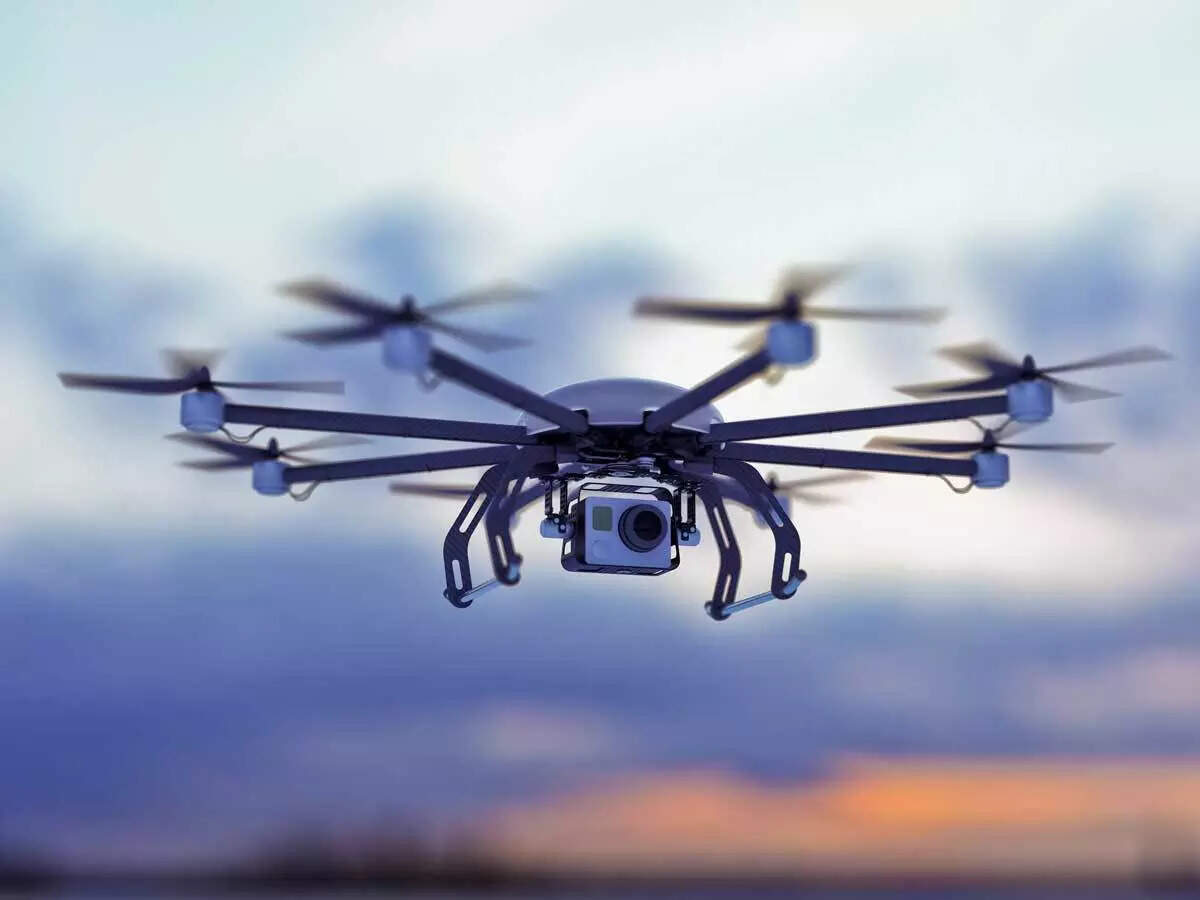
News
September 11, 2025
Drone startups look to stay afloat via Namo Drone Didi Scheme
Drone startups are facing challenges due to low demand and high costs, eagerly awaiting the Namo Drone Didi scheme's implementation. The initiative, with a Rs 1,261 crore allocation, aims to provide 14,500 drones to women's self-help groups, potentially boosting startup revenue by up to 30%.
Drone startups are pinning their hopes on the Namo Drone Didi scheme as they navigate turbulent times marked by sluggish demand and hefty operational expenses. These fledgling businesses, focused on unmanned aerial vehicle technology, are eagerly anticipating the rollout of the government initiative, which promises a much-needed financial boost.
The Namo Drone Didi scheme, armed with a substantial allocation of Rs 1,261 crore, is designed to empower women’s self-help groups (SHGs) by providing them with access to drone technology. The plan envisions equipping 14,500 SHGs with drones, enabling them to leverage the technology for agricultural purposes and other income-generating activities.
For drone startups, this translates to a significant potential upturn in fortunes. Industry analysts predict that the scheme could potentially increase revenue for these companies by as much as 30%. This projected growth offers a lifeline to businesses struggling to achieve profitability amidst challenging market conditions.
The low demand currently plaguing the drone industry stems from a combination of factors, including the relatively high cost of drones and a lack of widespread awareness about their potential applications. Many farmers, for instance, are hesitant to invest in drone technology due to the initial investment required, even though the long-term benefits, such as improved crop yields and reduced pesticide usage, could be substantial.
The Namo Drone Didi scheme aims to address both these issues. By providing drones to SHGs, the government is effectively lowering the barrier to entry for potential users. Furthermore, the scheme incorporates training programs for women, equipping them with the skills necessary to operate and maintain the drones. This not only empowers women but also creates a skilled workforce capable of driving the adoption of drone technology across rural India.
The successful implementation of the Namo Drone Didi scheme is therefore crucial for the survival and growth of drone startups. As these companies wait for the scheme to take flight, they are cautiously optimistic that it will provide the much-needed impetus to propel the industry forward and unlock the vast potential of drone technology in India. The coming months will be critical in determining whether this ambitious initiative can deliver on its promise and help these startups soar to new heights.
The Namo Drone Didi scheme, armed with a substantial allocation of Rs 1,261 crore, is designed to empower women’s self-help groups (SHGs) by providing them with access to drone technology. The plan envisions equipping 14,500 SHGs with drones, enabling them to leverage the technology for agricultural purposes and other income-generating activities.
For drone startups, this translates to a significant potential upturn in fortunes. Industry analysts predict that the scheme could potentially increase revenue for these companies by as much as 30%. This projected growth offers a lifeline to businesses struggling to achieve profitability amidst challenging market conditions.
The low demand currently plaguing the drone industry stems from a combination of factors, including the relatively high cost of drones and a lack of widespread awareness about their potential applications. Many farmers, for instance, are hesitant to invest in drone technology due to the initial investment required, even though the long-term benefits, such as improved crop yields and reduced pesticide usage, could be substantial.
The Namo Drone Didi scheme aims to address both these issues. By providing drones to SHGs, the government is effectively lowering the barrier to entry for potential users. Furthermore, the scheme incorporates training programs for women, equipping them with the skills necessary to operate and maintain the drones. This not only empowers women but also creates a skilled workforce capable of driving the adoption of drone technology across rural India.
The successful implementation of the Namo Drone Didi scheme is therefore crucial for the survival and growth of drone startups. As these companies wait for the scheme to take flight, they are cautiously optimistic that it will provide the much-needed impetus to propel the industry forward and unlock the vast potential of drone technology in India. The coming months will be critical in determining whether this ambitious initiative can deliver on its promise and help these startups soar to new heights.
Category:
Technology